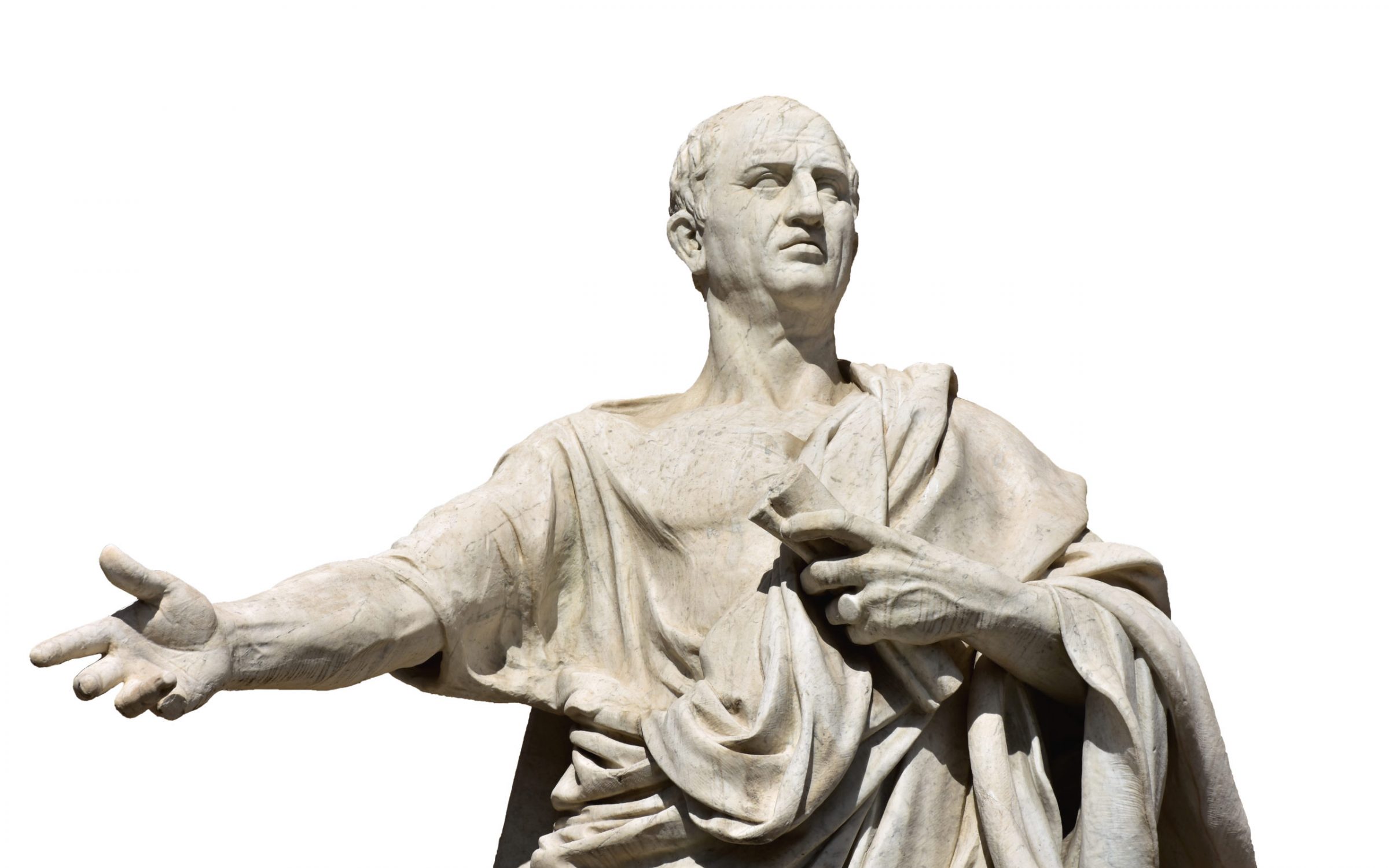One of Europe’s most revered statesmen, the Roman heir to Demosthenes and a master of his native prose, Marcus Tullius Cicero has cast a long and influential shadow over the course of Western history. His career enveloped the final and fateful days of the republic and his death marked the symbolic diminishing of senatorial power and the rise of the Roman emperors. Famed as the foremost orator of his age, arguably Cicero’s considerable oratorical talents ensured his own demise, demonstrating how victory can covertly determine self-destruction.
Cicero hailed from a wealthy equestrian family based in the Arpinum, his illustrious cognomen actually means “chickpea” in Latin and was probably applied to his ancestors because they farmed that nourishing food. By the age of 26, Cicero was already noted as a competent lawyer and gifted speaker. This reputation allowed the young man to advance his ambition of eventually leading a political life.
He soon acquired administrative responsibilities in the provinces where he reportedly conducted his career with a rare honesty and probity. During this time, he continued to act as a legal advocate and extended his notoriety for forensic examinations of complex cases. Through his thirties he rose rapidly through the roles of quaestor, aedile and praetor before being elected Consul aged 42.
As Consul, he famously thwarted a conspiracy conceived by his rival, Catiline, to overthrow the republic with the assistance of mercenaries. He summarily had the plotters put to death without trial, garnering him a mixed reception of praise for his endeavours to quall the rebellion and disdain for having ignored the conspirator’s rights to litigation. After his consulship ended, Cicero’s adversaries waged a public relations war, chasing him into exile and rendering him a social pariah and political outcast.




